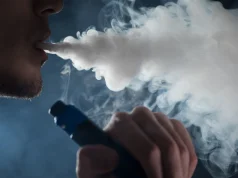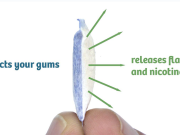Researchers from the University College London, UK, explored “i) associations between vaping and self-reported diagnosed/suspected Covid-19; ii) changes in vaping since Covid-19 and factors associated with these changes; iii) whether Covid-19 motivated current or recent ex-vapers to quit.”
Self-reported data on sociodemographic characteristics, diagnosed/suspected Covid-19, vaping status, changes in vaping and motivation to quit vaping since Covid-19, was compiled via survey responses from a total of 2791 participants.
The current study ruled out vaping as a protective factor
“There were no differences in diagnosed/suspected Covid-19 between never, current and ex-vapers. Bayes factors indicated there was sufficient evidence to rule out small negative (protective) associations between vaping status and diagnosed/suspected Covid-19,” reported the researchers.
“Among current vapers (n=397), 9.7% (95% CI 6.8-12.6%) reported vaping less than usual since Covid-19, 42.0% (37.2-46.9%) reported vaping more, and 48.3% (43.4-53.2%) reported no change. In adjusted analyses, vaping less was associated with being female (aOR=3.40, 95% CI 1.73-6.71), not living with children (aOR=4.93, 1.15-21.08) and concurrent smoking (aOR=8.77, 3.04-25.64), while vaping more was associated with being younger (aOR=5.26, 1.37-20.0), living alone (aOR=2.08, 1.14-3.85), and diagnosed/suspected Covid-19 (aOR=4.72, 2.60-8.62). Of current vapers, 32.2% (95% CI 27.5-36.8%) were motivated to quit vaping since Covid-19, partly motivated by Covid-19, and 17.4%, (9.7-26.3%) of recent ex-vapers quit vaping due to Covid-19.”
Further reseacrh exploring the relationship between COVID-19 and nicotine consumption
In contrast to prior findings, the current study found no difference in diagnosed/suspected Covid-19 rates between never, current and ex-vapers. Meanwhile, based on research suggesting that nicotine acts as a protective factor against COVID, a recent press release by Assistance Publique – Hôpitaux de Paris (AP-HP), explained that nicotine inhibits penetration of the virus and its propagation in cells, and therefore nicotine could play a prophylactic (preventative) role against COVID-19. To this effect AP-HP is to conduct further research to examine this relationship.
The researchers will administer nicotine patches to some of the participants for a period of 4 to 5 months, and then carry out a follow-up for 6 to 7 months. Of course, it is still too early to conclude exactly how nicotine interacts with the coronavirus. However, if nicotine is indeed confirmed as a protective factor, NRTs including e-cigarettes could play a pivotal role in controlling this pandemic.












